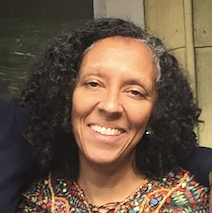Tag Archive: leadership
March 10, 2017
“We never know how our small activities will affect others through the invisible fabric of our connectedness. In this exquisitely connected world, it’s never a question of ‘critical mass.’ It’s always about critical connections.”
Grace Lee Boggs
The past twelve months I had the pleasure of working with a team from Food Solutions New England to design and facilitate its first Network Leadership Institute. This initiative grew out of FSNE’s ongoing commitment to cultivating thought leadership and network leadership “to support the emergence and viability of a New England food system that is a driver of healthy food for all, racial equity, sustainable farming and fishing, and thriving communities.” Another impetus for the Institute was a year spent doing system mapping and analysis that revealed four leverage areas for advancing a just, sustainable and democratically-owned and operated regional food system, including cultivating and connecting leadership. Read More
December 6, 2016
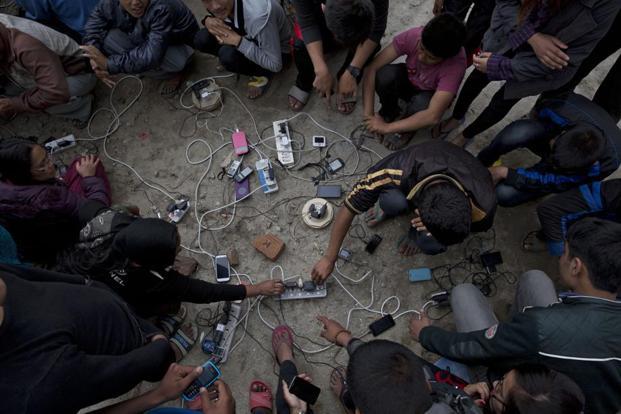
Over the recent Thanksgiving break, I had the opportunity to meet with friends of extended family members, a couple who are engaged in both disaster relief and community planning work. She is from Nepal and he is from the U.S., and together they relayed a story about their time visiting Nepal during the devastating earthquake of 2015.
The two of them were hiking in the mountains when the 7.8 magnitude quake struck. Shaken but not hurt, they made their way back to Katmandu as quickly as possible to check in on family members and then to offer their assistance to others. Originally assigned the task of loading water jugs on trucks, they then volunteered and were enlisted for their translation skills, and headed out to some of the hardest hit villages with international relief workers. Read More
October 7, 2016
 In light of a recent conversation with Jana Carp, an academic who has studied the underlying principles of the “slow movement” and how they connect to sustainability, place-making and livabily, I am revisiting, revising and reposting the piece below. Jana and I were connected by a mutual colleague with the Fire Adapted Communities Learning Network, given our mutual interests in public engagement, community-building and sustainability (inclusive of justice), and had an interesting conversation about slowness and networks.
In light of a recent conversation with Jana Carp, an academic who has studied the underlying principles of the “slow movement” and how they connect to sustainability, place-making and livabily, I am revisiting, revising and reposting the piece below. Jana and I were connected by a mutual colleague with the Fire Adapted Communities Learning Network, given our mutual interests in public engagement, community-building and sustainability (inclusive of justice), and had an interesting conversation about slowness and networks.
At one point, the question came up as to whether networks might cut against slowness, especially when the emphasis is on rapid growth, diffusion, and trans-local connections. My thought at the time was that this certainly could be the case, and that is why it is important to think about both the breadth and depth dimensions of networks, as well linking different scaled networks (local, regional, global). The importance of networks for social change can certainly reside in their reach and rapid scaling. Their potential also resides in the nature and quality of connection, how deep the ties that bind are and what they help to create and circulate. And this brought me back to these reflections on how to think about “social velocity” in networks and collaborative work …
My friend Joel Glanzberg is a constant source of provocation and insight. The way he sees the world, through a living systems and pattern-seeking lens, is not only refreshing but unnerving in that it is evident how simultaneously critical and rare his perspective is. Joel is great at helping me and others to see beyond objects and structures to underlying patterns and processes, and how these are what animate living systems. Read More
June 16, 2016
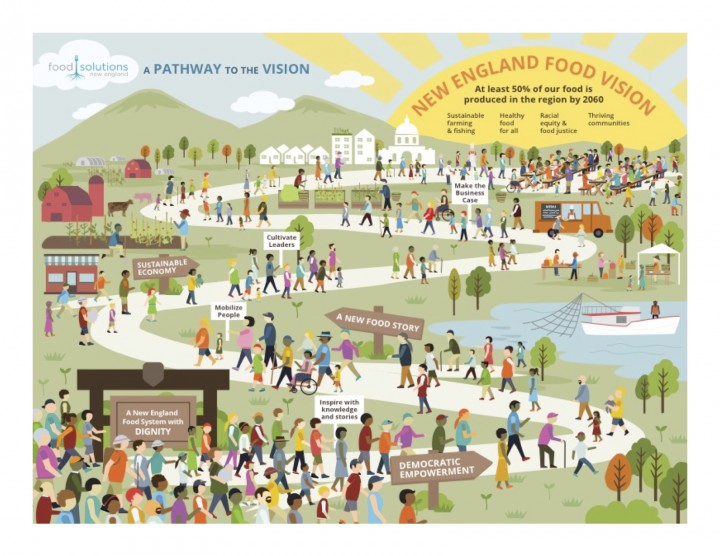 Last week over 190 delegates attended the 6th annual New England Food Summit in Bridgeport, Connecticut. This marked the completion of a cycle through all six New England states and an important moment in the evolution of Food Solutions New England, a network of networks that has been in development with IISC’s support around a bold Food Vision that sees the region becoming more connected and self-sufficient while supporting a more equitable, eco-logical and vibrant food economy.
Last week over 190 delegates attended the 6th annual New England Food Summit in Bridgeport, Connecticut. This marked the completion of a cycle through all six New England states and an important moment in the evolution of Food Solutions New England, a network of networks that has been in development with IISC’s support around a bold Food Vision that sees the region becoming more connected and self-sufficient while supporting a more equitable, eco-logical and vibrant food economy.
Leading up to the Summit, the FSNE Network Team engaged in a year-long system mapping and analysis process that yielded a few key systemic health indicators associated with the Vision as well as a set of leverage areas for framing and advancing regional strategies in the direction of the Vision:
- Engaging and mobilizing people for action
- Cultivating and connecting leadership
- Making the business case for a more robust, equitable and eco-logical regional food system
- Weaving diverse knowledge and inspiration into a new food narrative
Read More
February 24, 2016
“Network entrepreneurs are keenly aware that they are few among many working across the larger system, and in this way they embody a special type of … leader[ship].”
– Jane Wei-Skillern, David Ehrlichman, & David Sawyer

Image from Taro Taylor – https://www.flickr.com/photos/tjt195/30916171
The concept of leadership has been undergoing an evolution. In this “network age” there appears to be both an expanding appreciation that leadership has always been about more than the singular heroic individual, and that going forward, leadership really must be much more of a shared endeavor.
In our collaborative consulting work at IISC, leadership (or what we often call Facilitative Leadership) is about “holding the whole,” thinking expansively about the state of a given complex system (community, economy, ecosystem, etc.) and paying attention to what will be required to ensure resiliency and/or change for more equitable and sustainable benefit. In these situations, the traditional top-down images of leadership fall far short.
Network leadership is at best a dynamic, diverse, more decentralized and multi-dimensional phenomenon. Many of those with whom we partner at IISC understand this implicitly, and we have found it important to help them be more explicit about this by clearly delineating the roles that leadership can embody in a collaborative/networked change endeavor. Read More
July 15, 2015
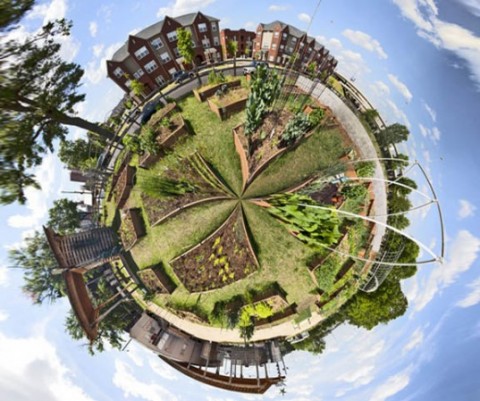
I posted the following about five years ago on this site, and have been actively thinking about and experimenting with its core lessons ever since. I have only become more compelled by the need to bring a living systems orientation to work for social change. Curious to hear reactions and what you are already doing to apply insights from and living systems.
Part 1
Last week I was in the presence of a master. For more than 25 years, Lauren Chase-Rowell has skillfully and intuitively cultivated the land around her house in Nottingham, NH to the point that it exists in great harmony with the beautiful farm house, people and fauna occupying that space. Lauren is an ecological landscaper, organic farmer, and permaculture design teacher. Her home, Dalton’s Pasture Farm, is a vibrant classroom and testament to the possibility of practicing “earth-centered living.” Read More
June 4, 2015
“What is to give light must endure burning.”

Photo by Soreen D
I sometimes use the metaphor of “fire tending” when talking about Facilitative Leadership, the approach to leadership and social change we here at IISC practice, model and teach. Facilitative Leadership is grounded in the ethic of “creating and inspiring conditions for self-empowerment so that people can work together on a common goal.” It is a form of leadership, rooted in a series of connected and reinforcing practices, that increasing numbers of people, organizations and networks seem to be drawn to in this ever more complex, uncertain and dynamically interconnected world.
Thanks in part to the following inspiration from poet and professor Judy Sorum Brown, I invoke “playing with fire” as a way to think about ways of creating optimal conditions for collaborative change. Read More
March 5, 2015

Two years ago, the Food Solutions New England (FSNE) Network Team, with support from IISC, committed to putting racial equity at the center of its work in trying to bring the six state region together around a vision of a more sustainable food system. Since formalizing that commitment with more than 150 delegates at last year’s annual Food Summit, and taking it to other food system-focused networks by invitation, the FSNE Network Team has faced the big question – Now what? How to deliver on this commitment and in a regional context? At the very least we continue to deepen our learning around and commitment to equity, modeling for and learning from and with others, growing and strengthening our understanding and action. A sub-committee of the Network Team, of which IISC is a part, has put together a racial equity plan consisting of various areas of activity, including education, communication, convening, network weaving/organizing and curating tools and resources for food system advocates at all levels (organizational, community, municipal, state).
One step that has just been launched is a bit of an experiment, and takes the 21 Day Racial Equity Habit Building Challenge from Debbie Irving (author of Waking Up White) and Dr. Eddie Moore, Jr. (founder of the White Privilege Conference), and turns it into a virtual community of practice. The ongoing challenge of the Network Team is to figure out a variety of means to keep knitting the network, and to keep communication and learning flowing. This is where the proliferation of social media tools and collaboration platforms has been extremely helpful. Read More
July 22, 2014
I recently read an opinion piece that seems to validate the work we have been doing for the last number of years. In “The end of genius” Joshua Wolf Shenk successfully argues that “the lone genius is a myth that has outlived its usefulness. Fortunately, a more truthful model is emerging: the creative network.”
THIS! My friends, is what we have been working on.
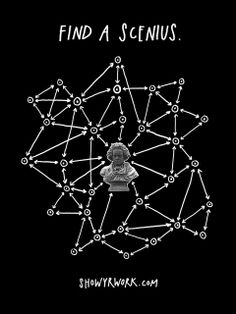
Read More
July 18, 2014

We partnered with a foundation as they built a network of leaders who shared a deep passion for their city. In the beginning, many of the leaders wanted to do something together quickly. We encouraged them to pause, build deeper relationships, and see what emerged. Read More
July 15, 2014
Thanks to Deborah McLaren for putting this slide show together that references the good work of June Holley, Chris Brogan, and Beth Kanter. I find that there are many people out there who naturally get the concept of “network weaving” and many others still who are still learning to understand its value, and to see it as a function of leadership in a networked world.
At IISC, we like to talk about “Facilitative Leadership” as a practice of “creating and inspiring conditions” that deliver on the promise of collaboration (innovation, rapid diffusion, equity, resilience, adaptation, etc.). In this vein, I particularly like what Chris Brogan suggests as the following leadership practice related to network weaving:
- Spend 20 minutes every day thinking about your network
- Spend 10 minutes every day cultivating your network
- Deliver 2 or 3 times as much value as you ask from your network
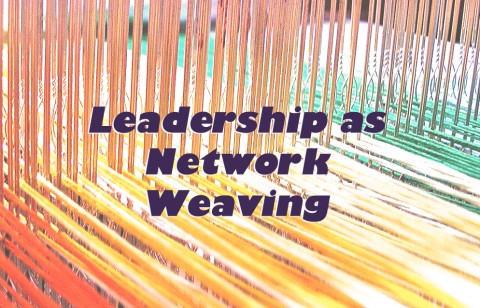
July 9, 2014
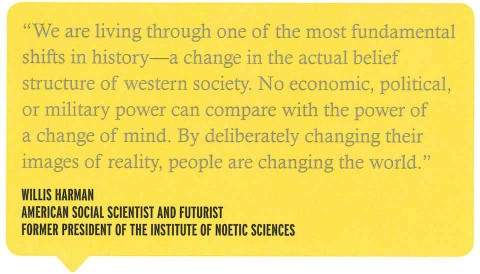
Two recent graduates of a Facilitative Leadership for Social Change workshop Mistinguette Smith and I led in New York, Alison Gold and Juan Sebastian Arias from Living Cities, recently wrote to us about a creative way they are bringing the frameworks and tools they learned back to their organization. So many of you ask us for advice about how to apply this stuff that we thought you’d want to know about it too! Read More


 In light of a recent conversation with
In light of a recent conversation with  Last week over 190 delegates attended the 6th annual
Last week over 190 delegates attended the 6th annual 





